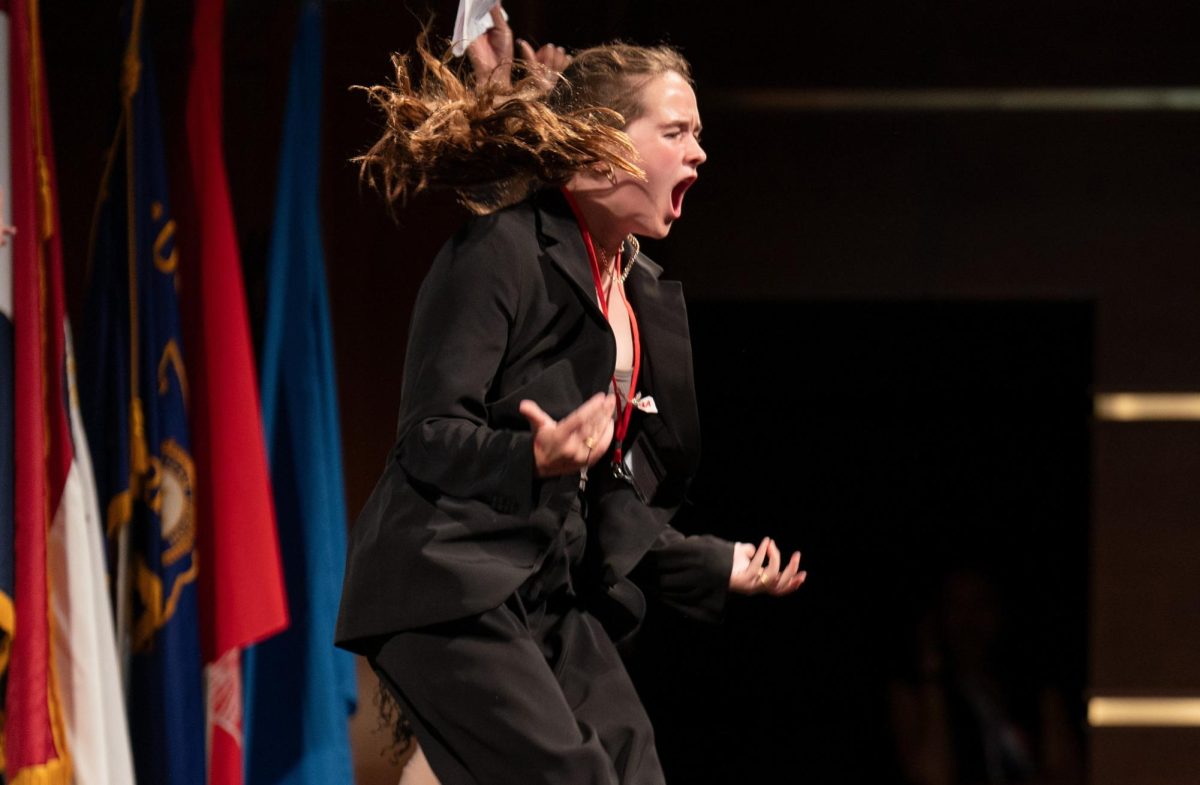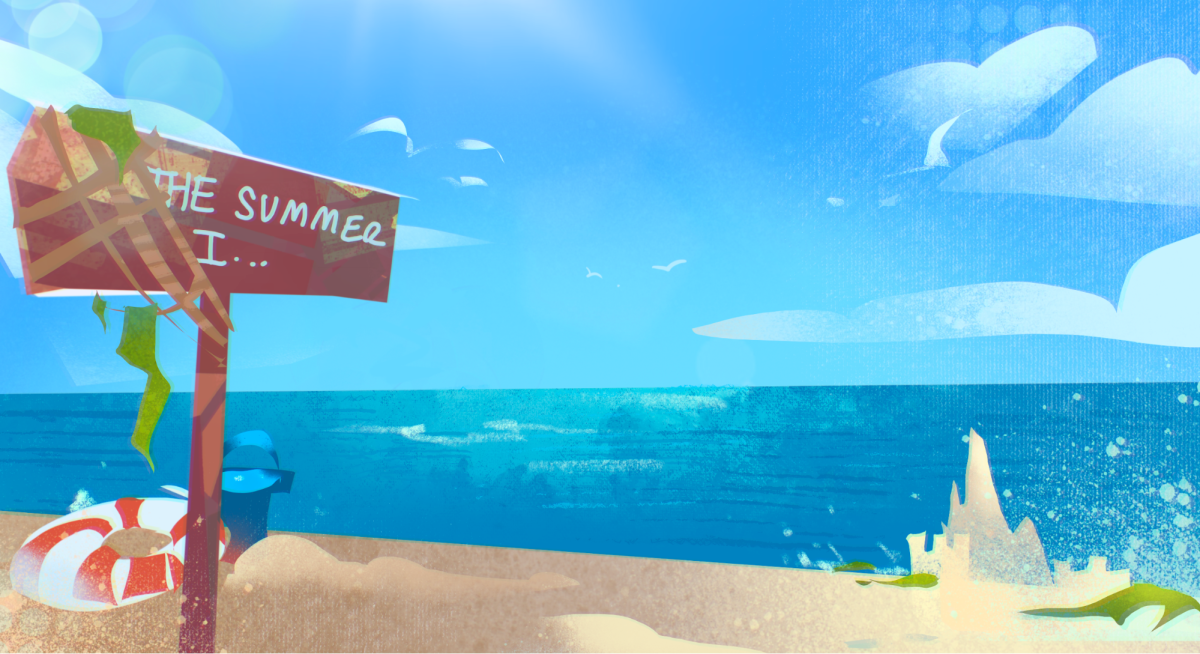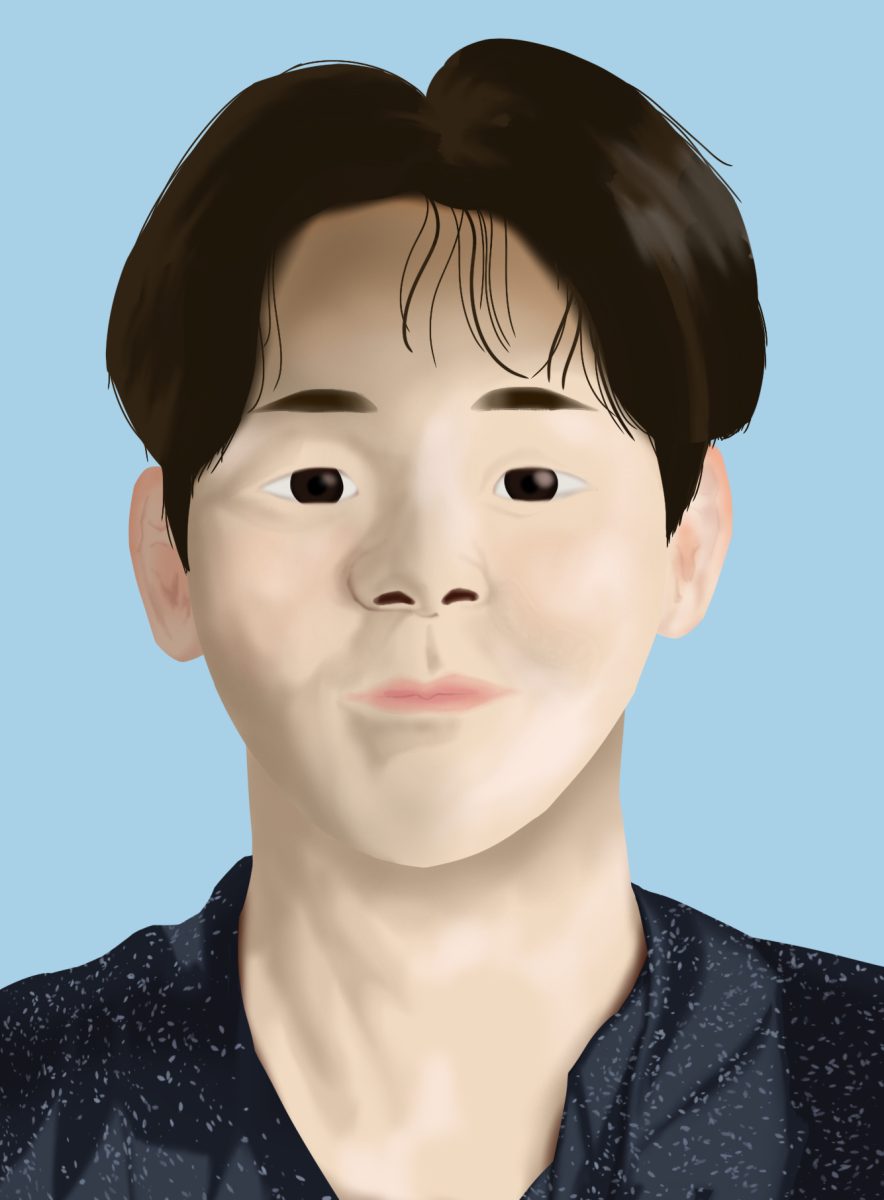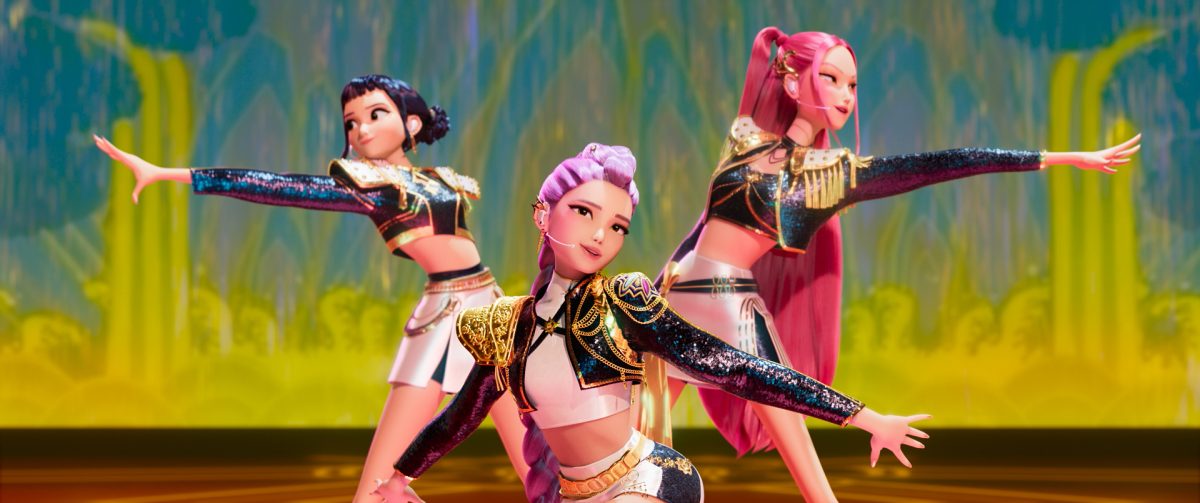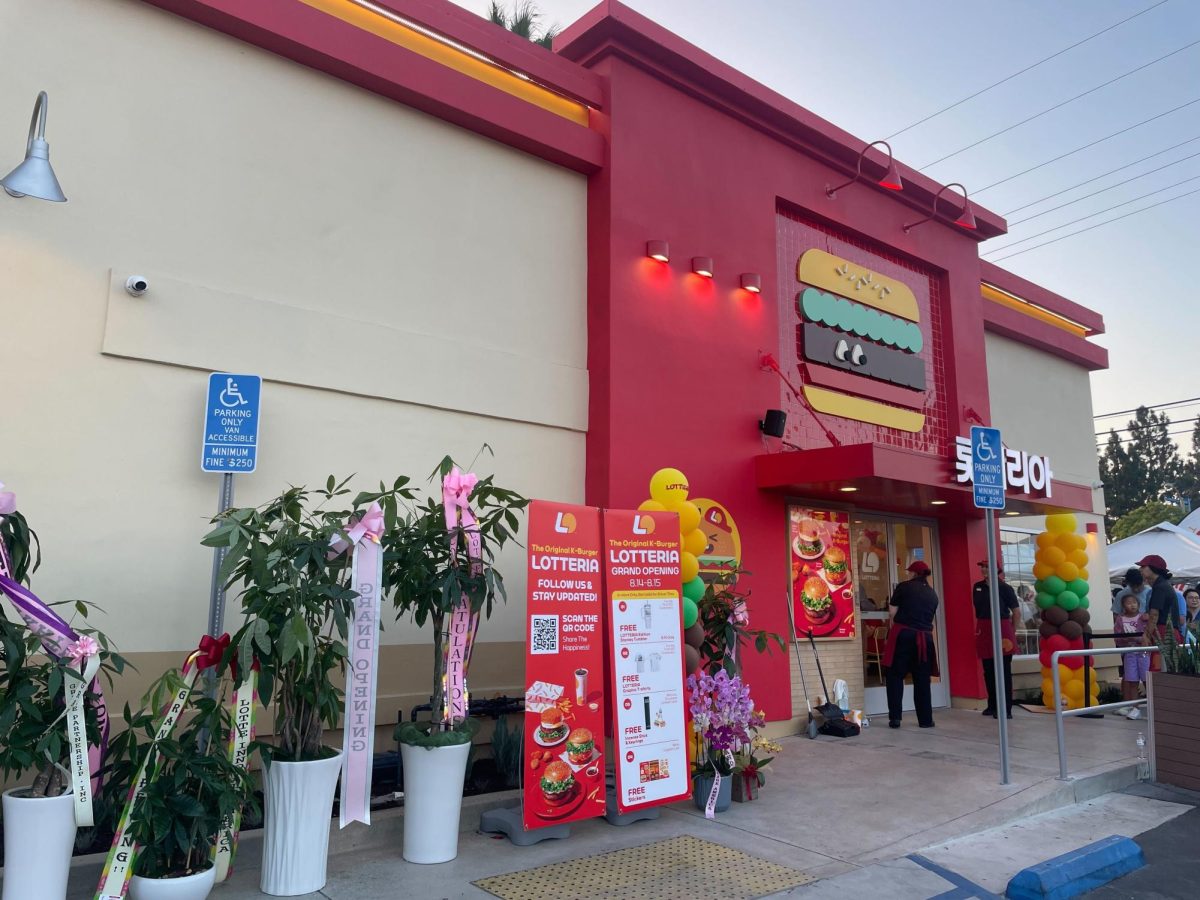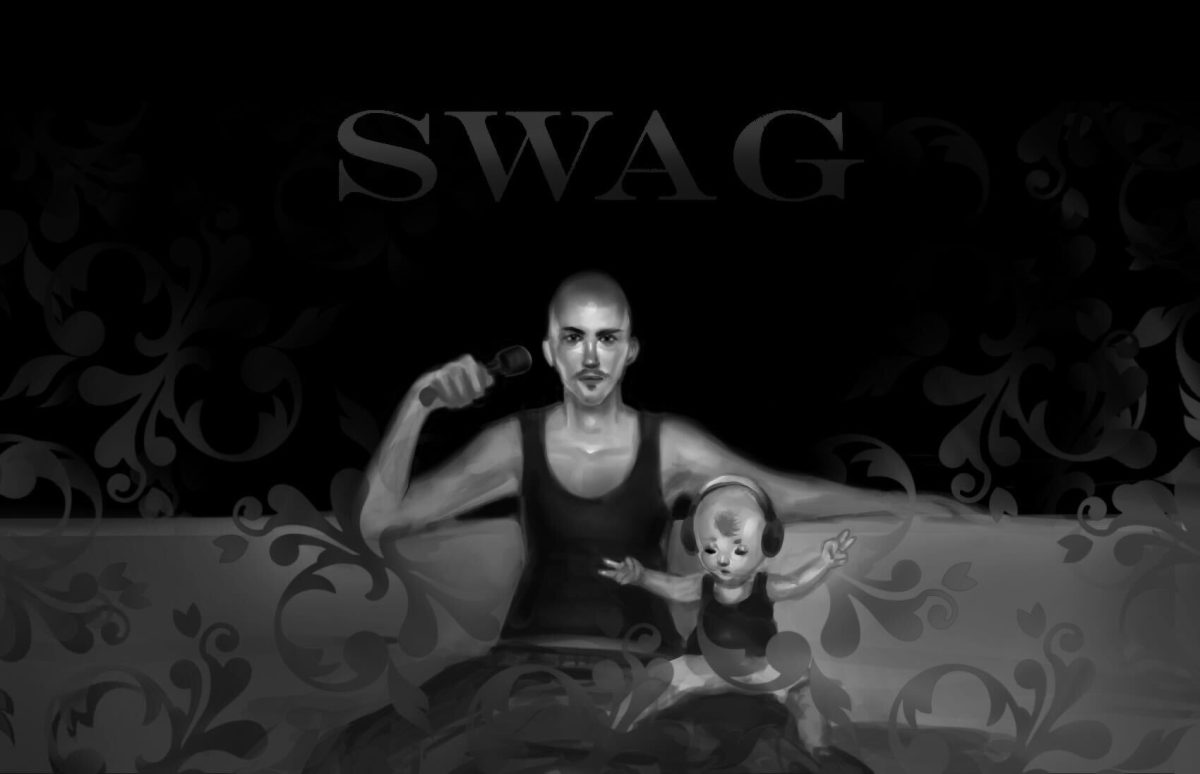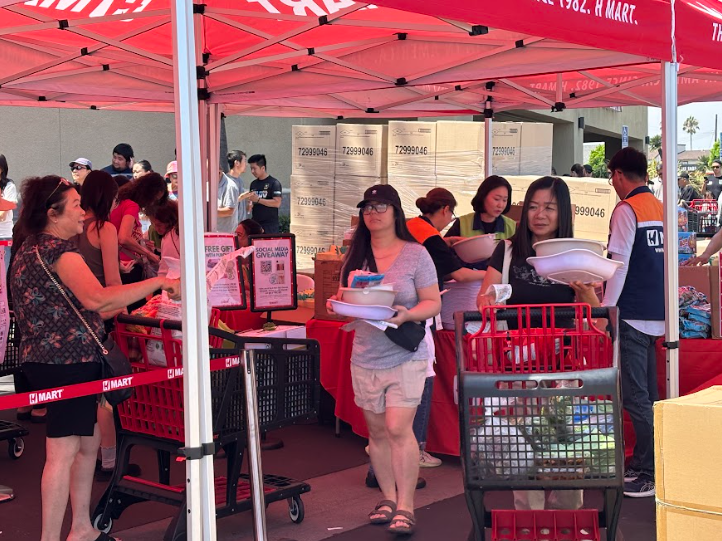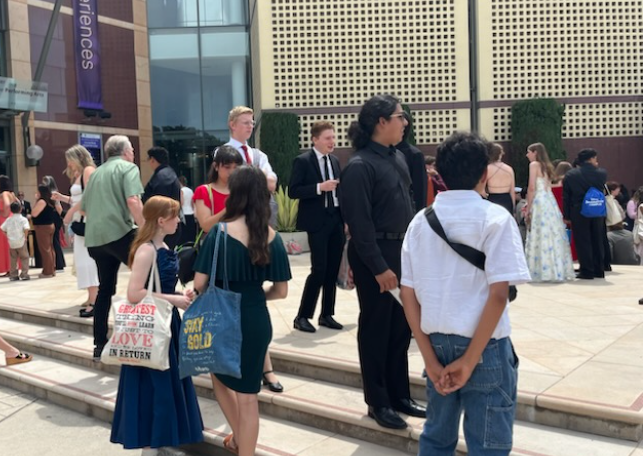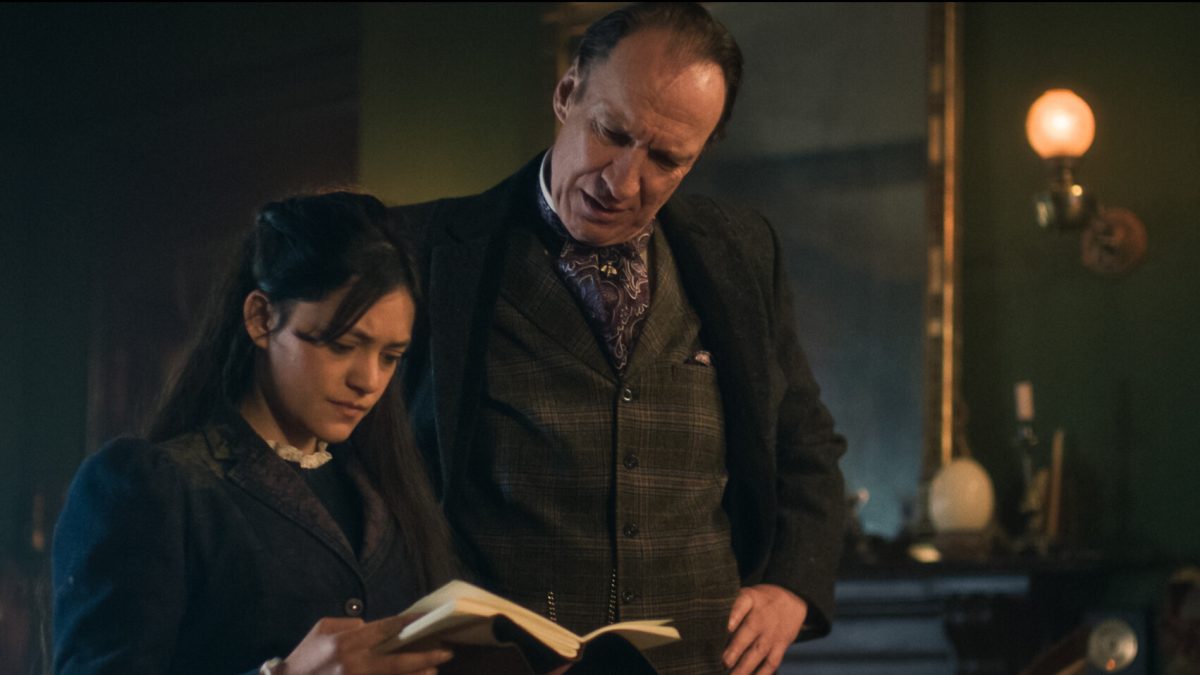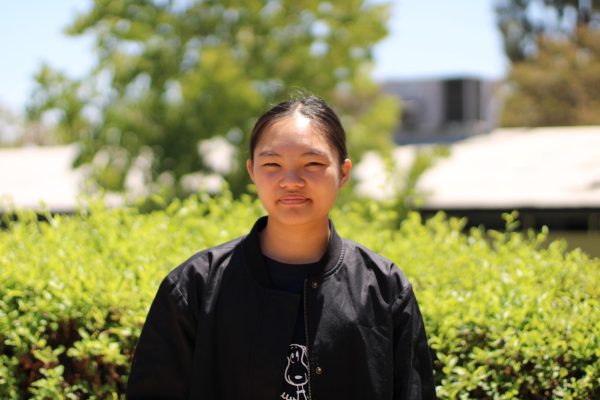Released last semester on Apple TV+, “Girls State” focuses on select moments from an annual event of the same name held in Missouri for young ladies in high school. It follows five girls and their experiences in 2022 running a mock government up to the final day’s announcement of the elected “governor.”
The one-hour and 35-minute documentary garnered two awards from the Television Academy’s Creative Arts Emmy program held on Saturday, Sept. 7: Outstanding Cinematography for a Nonfiction Program and Outstanding Directing for a Documentary/Nonfiction Program.
Soon after President Joe Biden announced his decision on July 21 to no longer seek re-election and instead replace his name on the 2024 presidential ticket with vice president Kamala Harris’s name, The Accolade had the opportunity to reach out to four cast members for their thoughts on this development with three who responded.
Cecilia Bartin, who ended up getting elected as Girls State “governor,” answered Accolade copy editor junior Serenity Li’s and adviser Tommy Li’s questions via a Zoom meeting held on Saturday, Aug. 31. Bartin is now a sophomore attending Brown University with an undeclared major. The interview has been edited for brevity and clarity.
Q: At the beginning of the [“Girls State”] film, there was a speaker who said, “The truth is, femininity is powerful.” Do you remember that part? And then I remember that [one of the girls in the film], Tochi Ihekona, mentions we’re all teenage girls who care about government. And then you mentioned at a certain point that the future is female. So the interesting thing is that when you guys said all this [in 2022], we didn’t know that we would now have a female presidential candidate. What do you think about the chance for Harris to make history again; she was the first female vice president and now she could be our first female president?
A: It’s incredible. We all were watching the Biden vs. Trump campaigns feeling, OK, it’s just going to be another old white man in charge, and things are kind of the same as they’ve been. But Kamala upon coming into the race, she’s done a great job with re-energizing everybody. And the fact that she’s going to be our first female president if she wins, it’s monumental.
Q: What do you think about the chance for Harris to make history again, as she was the first female vice president and now she could be our first female president?
A: I mean I think it’s incredible, … Biden did a lot of great things, but I think everyone was sort of like “ok it’s just going to be another old white man in charge” and things are kind of the same as they’ve been, but I think Kamala coming into the race, I think she’s done a great job with kind of reenergizing everybody and the fact that she’s going to be our first female president if she wins, I think it’s monumental.
I think it’s a very exciting election to watch, and I’m really excited and on top of all that, being from Missouri, Crystal Quade is running for the democratic party for governor, and if she won she would be our first female governor, so it’s like a super exciting election, and also Missouri is voting on the first abortion act – the abortion access amendment – so we have the first ballot initiative to make abortion access in our constitution. It’s a huge election for Missouri for women’s rights and female leadership.
Q: And so have you done anything at your college or back at home for like to get the vote out or for civic engagement or anything like that?
A: I was working on Crystal Quade’s campaign this past summer, and I’m working on it until Nov. 7 so I’m doing pop-ups for her, and then I wrote an article in Teen Vogue … kind of advocating for her and more female leadership in general, and then I guess in Rhode Island, Brown does a really good job of having like, get out the vote drives, so I haven’t been doing much get out the vote advocacy here, but just telling everyone around me to vote, I guess, is the other thing.
Q: What’s the vibe like at Brown? Does it seem like the majority of the youth are voting for Harris, or are they all mixed?
A: Everyone I know is voting Kamala Harris just because a lot of my friends are women and Democratic. Especially, Brown University is a very liberal school so, [everyone is definitely] voting for Kamala Harris.
Q: So your documentary ends with the song from Taylor Swift called, “The Man.” So if Harris wins, would that be an appropriate song for the Harris celebration or like for her inauguration?
A: I don’t know if I know a lot of the words, but the message is about how I can do any job a man can do and also the whole acknowledging that women do have to work harder than men right now to get to the same place.
Q: Since the documentary came out, do you see other people coming up to you, or do they sort of ask you for feedback on what it’s like to be in a documentary?
A: Most of my friends know about me from my Instagram. It’s not like I’m in a Marvel movie or something; it’s like people saw my Instagram and then asked me about it, so I’m not getting stopped on the streets or anything.
But it’s definitely very exciting to be able say, “I’m going to the Emmys in person,” and everyone’s like, “Ooh, you’re going to the Emmys – that’s insane.” So I’m thankful in that way, but I’m not fighting off paparazzi.
Q: Some people are afraid of traveling to or near Washington, D.C. – of what might happen after if Trump wins. What are your thoughts about all those things that people are worried about?
A: The hard thing about right now is you don’t know what to expect. I’m just hoping nothing bad happens, but I have absolutely no clue. I think it could be harmful to be super cynical. I don’t like the whole message of, “Our democracy is falling apart – things will never go back to the way they were.” Things are changing; there are always crises going on, and the key is to stay involved and keep working to make things better.
Q: Did you know that there was going to be like a camera crew and people documenting Girls State into a movie?
A: I actually found out from my English teacher because I was talking to him after class … because I found out I was going and he was like “Oh there’s a crazy documentary about boys state in Texas, I wonder if they are connected.” … Around that time I started getting the waivers for the Apple TV documentary and stuff like that and I was like, “wait a second I think these might be connected” and then I kind of found out. So I think I got in and then the week after, they sent out the paperwork being like, “are you ok with being in the background, do you wanna sign up to be interviewed?” Then I kind of like slowly realized that it would be kind of a big deal
Q: So you didn’t go because it was being made into a documentary?
A: Oh definitely not. I went because I had a friend who was going, and she was like “can you come? I don’t want to go by myself,” so I signed up and she ended up not coming … so I had no idea it was being filmed when I was applying.
Q: Did you know that you would be one of the main girls they would focus on?
A: No, … I did one of the zoom interviews and they never really followed up with me, so I came to the camp totally like a normal person, and after I gave [my] speech then they started following me.
Q: Is there a person or someone in history that inspires you?
A: I think a lot of [the] content of my speech and [who] I am comes from my mom. She’s always been someone who’s like, “You should always speak your mind,” … I have two older sisters, so I think she raised us [to] know you can never not do something just because you are a woman and then also on top of that, with like the reality that because we are women we are going to be treated differently, and [people] are going to think our roles are going to be different than they are so she raised us to want to fight against that, and I think that that’s where a lot of the supplement of my speech comes from, and also she [is] a great mom.
Q: At Girls State you had the chance to interact with people with different political views and talk with them and debate with them. After Girls State, did anything change for you in the way you thought about politics or your beliefs?
A: I don’t think my beliefs super changed. I think for the most part [when] I left, I wasn’t like, “oh I’m pro-choice now [or] I’m pro-life,” like I didn’t have any kind of big switch up like that, but I think the way I think about political disagreements changed. I think just because you spend so much time talking to people with the same beliefs as you, you kind of stop seeing the other side as they’re also people with their own experiences that back up their own beliefs, but talking to a lot of the the women at Girls State, you kind of meet them before you learn their political beliefs and then when you hear about their reasoning behind it might not be reasoning you agree with, but you can see how [it] might be valid to them … also I think for a long time I kind of saw [it like] two strong sides of the political aisle instead of a spectrum, but [at] Girls State, so many girls are like, “I would never get an abortion, [I] think abortion is wrong but I [think] that’s the government’s responsibility to mandate,” and then other things where they were just kind of like you know more across the aisle. … I have friends who are super liberal in every topic but then gun control they were like, “no I think gun control goes too far,” so it’s kind of that thing where you know no one’s political beliefs totally align with the party. They’re not just a big group of people, they are all individuals who are just kind of figuring it out for themselves.
Q: A few years ago, there was a female presidential candidate, Hillary Clinton and you weren’t allowed to vote. What are your thoughts this year on the current female presidential candidate and how you get to vote this year
A: That was my freshman year, and then I went to Girls State my junior year, so it had been a little bit since [Hillary] but I think kind of the energy. [I] think Brooke says it really well in the documentary. She’s talking about being Supreme Court Justice, and she says “it’s great that we’re all young women, and we get to come together and talk about it and act like we have a say over the decision, but in reality we don’t have a say over the decision,” so I think … that’s kind of a hard thing to put in your mind, [When] you’re at this place where everyone’s like “No it’s great you’re being politically involved; you need to be more politically involved [and] these topics affect your life, you should care about it,“ but also the realization that we have virtually no power over it. … Being 19, I guess it’s nice that I can first of all vote which is great but also just kind of work towards having more power over politics because one vote is great but it would also be great to have a hand in electing people and working on campaigns and being involved in a bigger way.
Nisha Murali, who unsuccessfully ran for Supreme Court justice, answered Serenity Li’s questions via email on Aug. 31. Murali is now a sophomore attending Texas A & M University as an Engineering major. The interview has been edited for brevity and clarity.
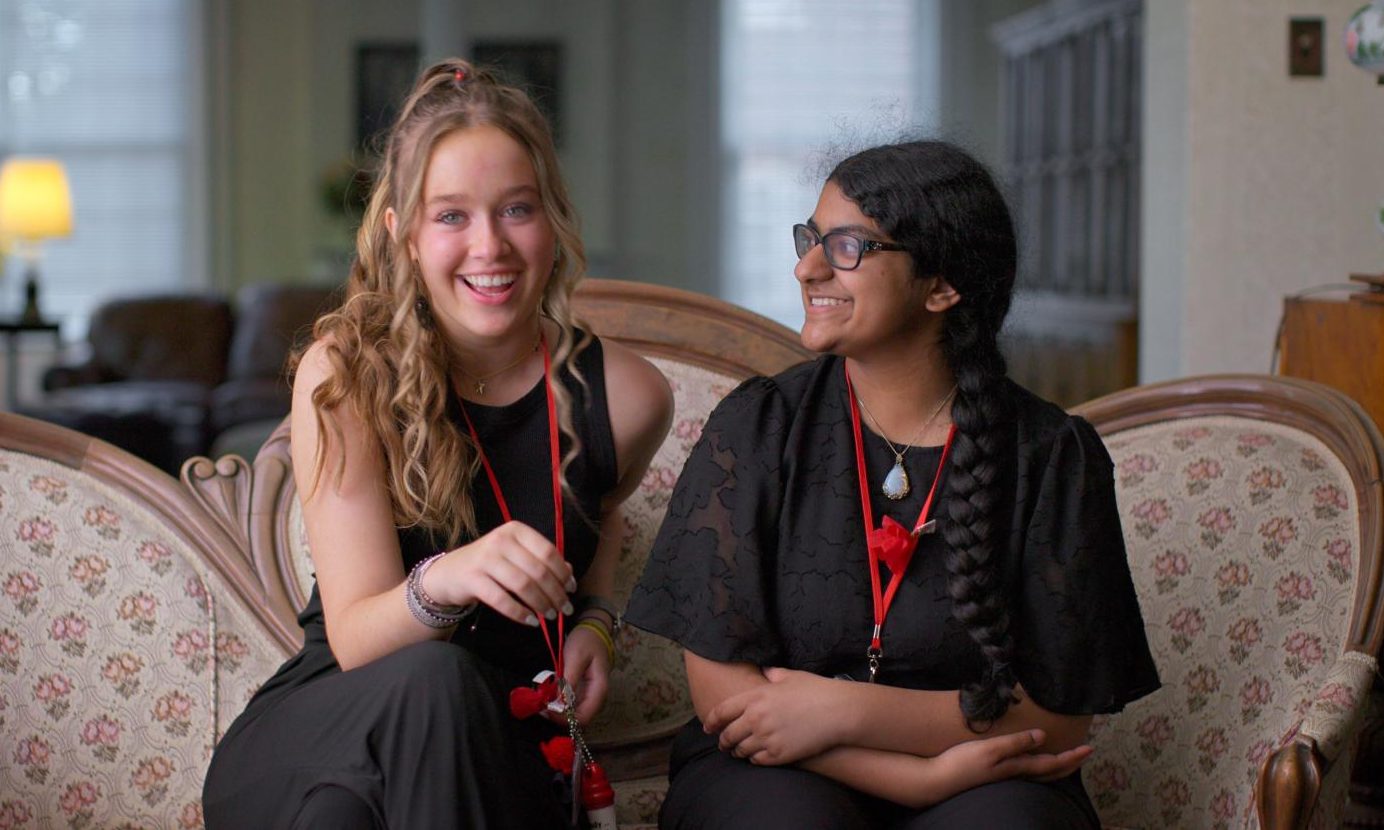
Q: In the documentary, did you reuse your reasons for why you should be in the Supreme Court for every round?
A: While I had similar reasoning, the exact things I said and examples I used changed based on the question asked in every round. I was more specific in some and less specific in others, or I highlighted different parts of my experience. My overarching desire – shaping policy using the court – remained the same.
Q: Why did you think you weren’t chosen for the Supreme Court?
A: It was a combination of reasons. First of all, the other candidate was extremely well-qualified, and had more connections in Missouri politics, which gave her more to talk about. Second of all, by the time of the final interview, I was exhausted after days of running on fumes, and I let that get to me. I wasn’t the best speaker I could be, and I second guessed my answers a bit too much. I’m quite happy with where I ended up though.
Q: If you could do anything different about your application process, what would it be?
A: I would have been less hesitant in the final interview. I worried too much about what the governor’s views were, which made me seem more hesitant than I actually am. I should’ve stood by my positions. I also would’ve gotten more sleep and ate more beforehand.
Q: How do you think you made an impact on this world with the documentary you participated in?
A: My hope is that at least one person saw the documentary and felt encouraged to get involved. I want them to realize that there is power in using their voice, trying to change the world around them.
Q: What are you doing currently to make a difference?
A: I’ve done quite a bit of political volunteering, and I’m also active in a few different political organizations at Texas A&M. Additionally, I’ve become more involved in teaching, and have gotten involved in some organizations focused on teaching girls.
Q: What are your thoughts on Biden’s plan to put term limits on the Supreme Court ethics reforms?
A: I’m a huge fan of ethics reforms!! I think that the court has become over-politicized, and has been ignoring crucial precedents recently. No justices should be taking money from billionaires, and I hope reforms help improve things!
Q: What are your thoughts about Cecelia Bartin’s statement “The future is female” in her speech?
A: [Cecelia’s] speech is my favorite part of the film. It makes me cry every single time, and more than that, it empowers me. Watching that speech for the first time was magical, and I think it represents the epitome of Girl’s State.
Emily Worthmore, who leans conservative but unsuccessfully ran for Girls State governor, answered Serenity Li’s questions via email on Sept. 7. Worthmore is now a sophomore attending Lindenwood University with a double major in broadcast and digital marketing.
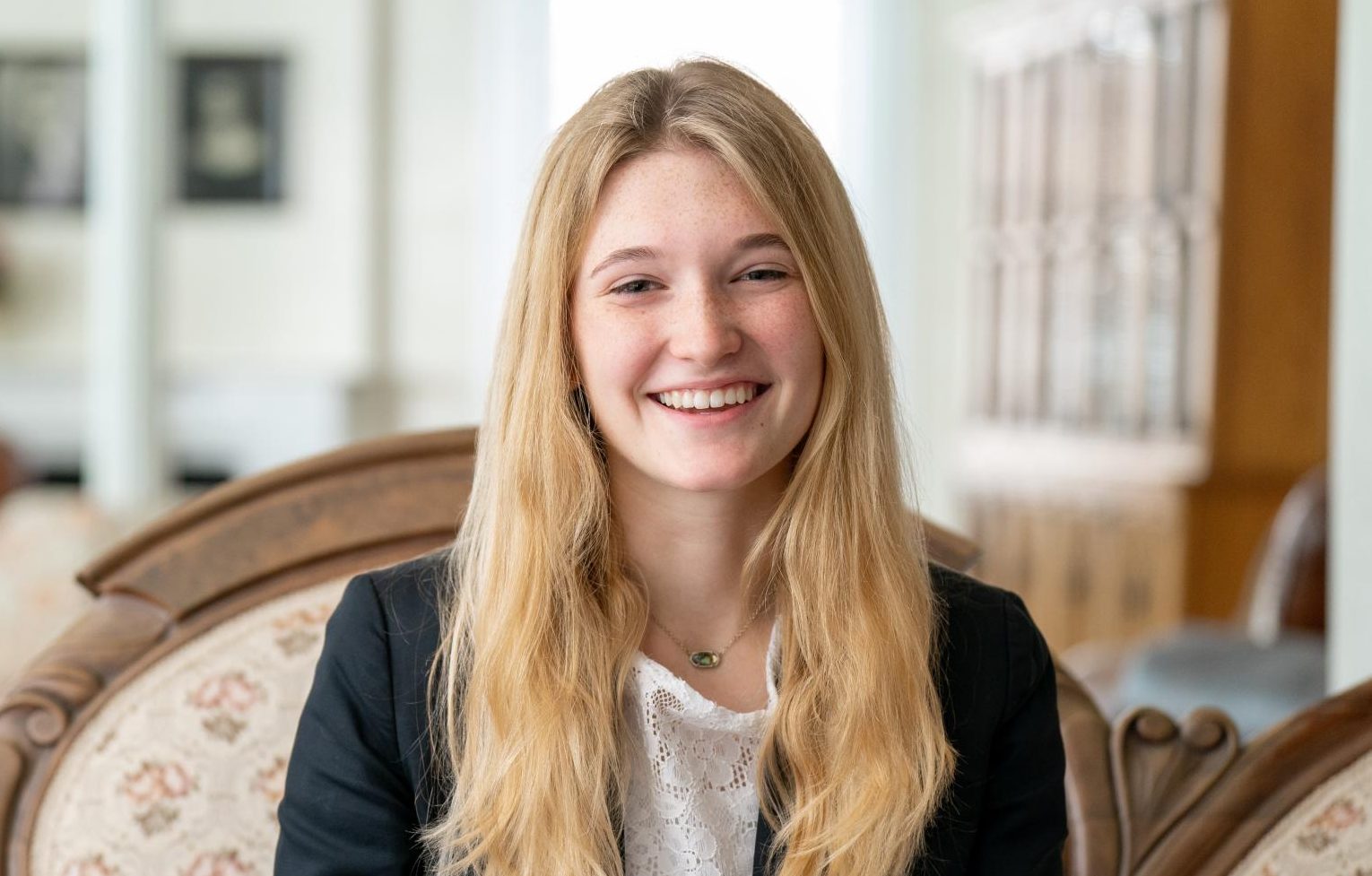
Q: What caused your passion for so many extracurricular activities?
A: I think I’ve just always been very into leadership and school spirit. In high school, I was genuinely interested in so many things and I was very much an overachiever.
Q: In the documentary and during Girls State, what made you sure that you wouldn’t win the election for governor after listening to everyone’s else’s speeches?
A: I lost my place in my speech, fumbled and went off script. My delivery wasn’t as strong because public speaking wasn’t my strong suit. I had a bit of stage fright at the time, and the other girls who were front runners delivered their speech with much more confidence.
Q: Also during Girls State, your story was published in the newspaper, but initially you said that you didn’t think it would be published. Why do you think it was published in the end?
A: It was published (with a title change) because I think it would’ve caused a bigger scandal if they didn’t publish it.
Q: Do you find yourself off put or like you can’t get along with liberals?
A: Not at all. A lot of my best friends are liberal. I am more so put off by people with closed minds like. Additionally, people who just repeat what they hear on tv without researching more into candidates themselves also annoy me. Educate yourself before speaking.
Q: How did you decide you were more conservative than liberal
A: I think it’s the way of thinking that’s always made more sense to me. Sometimes I try and check in with myself to make sure I’m really conservative and my reaction to some of the actions liberals take in office really don’t make sense to me so I’m still more conservative. I think conservatives value the constitution more and a lot of my beliefs are based on that document and I think it’s the most important thing keeping our country in check.
Q: How did you get through school and homework, while juggling volunteering, jobs, clubs, electives like journalism, and planning your presidential career?
A: I’ve been pulling all-nighters since middle school. I worked really hard and looking back, that much effort probably wasn’t necessary. I don’t regret it though. Hard work early on has prepared me to be better with stress and college level work. I just try and make a lot of to do lists and check things off one at a time.
Q: You took journalism in high school, what made you want to?
A: I always was interested in journalism and I knew it was part of my life plan. I loved journalism in high school. Our teacher was amazing. (Shout out Mrs. Moeckel!)
Q: You’ve had a dream to run for president in 2040. If you get elected, how will you be different from other presidents in the past?
A: I think I’m an honest person who will remain incorruptible even in office. I’d want to unify the country and work towards more bipartisanship because we can’t make any progress while we’re this divided.
Q: How do you think you made an impact on this world with the documentary you participated in?
A: I think I helped to humanize conservatives in the eyes of liberal viewers. I’d also love to think I inspired at least one girl to go for her dreams, whether it be to be a journalist, or to be president.
Q: What are you doing currently to make a difference?
A: I still go back every year to volunteer on girls state staff and give back to the organization that changed my life.
Q: What are your thoughts about these statements made in the documentary? “The truth is: Femininity is powerful.” (from the speaker in the beginning of the film)
A: Very true. Some of my favorite political leaders are beautiful, feminine, and powerful. I love when women embrace feminine power and show the world how beautifully women can lead.
Q: From Tochi Ihekona: “We’re all teenage girls who care about government”
A: That’s our common ground.
Q: From Cecilia Bartin: “The future is female.”
A: I think we should focus on making the future better for all. That’s true equality. I want a better world for my future daughter and son alike. We need to elect leaders who will be most fit to serve, not exclusively women. When I am elected President, I want it to be because I am the best candidate. Not because I am a female.



